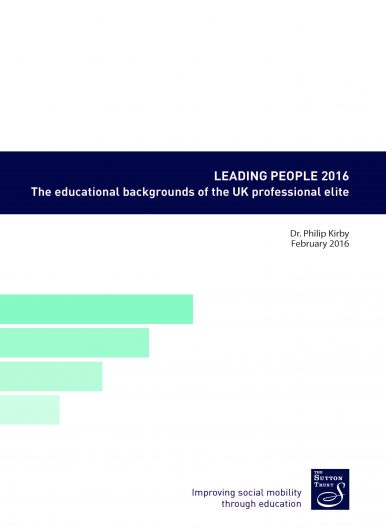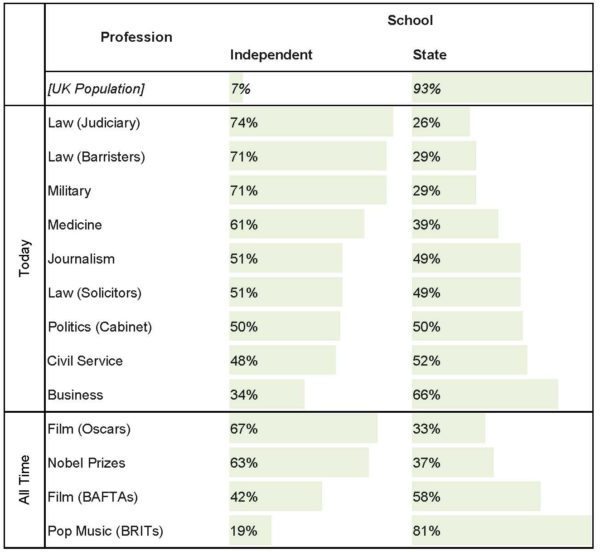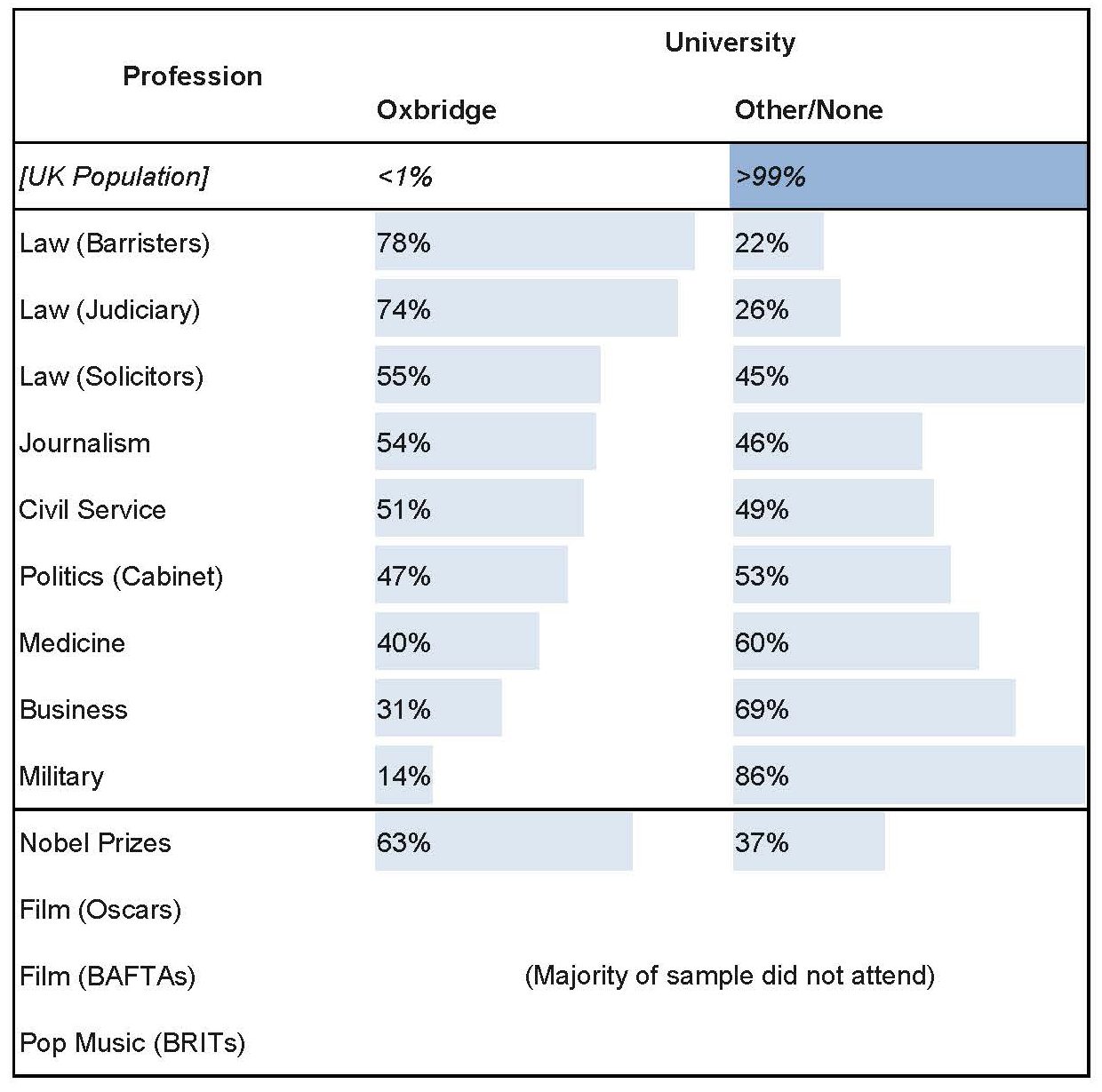Report Overview
Over a decade ago, the Sutton Trust published its first report on the educational backgrounds of the UK’s professional elite, looking at the schools and universities attended by top solicitors, barristers and judges.
Since then, we have published over ten updates on the educational backgrounds of people at the top of the professions, across a range of sectors. These include members of the House of Commons and House of Lords, leading news journalists, top medical professionals, FTSE 100 chief executives, university vice-chancellors, leading scientists and scholars and a selection of the most famous people in the arts.
Across the years, these reports have shown the staying-power of the privately-educated at the top of the UK’s professional hierarchy. Even when those with such backgrounds retire from the top of their field, they are frequently replaced by those with a similar educational past. In this report by Philip Kirby, these results are updated. The charts below show the data for the key professions, looking at whether or not they were privately educated and went to Oxford or Cambridge universities.
Key Findings


